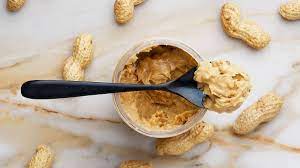What exactly is peanut butter?
After being roasted in the dry air, peanuts are processed into a creamy and ground form known as peanut butter. Peanuts make up around 90% of peanut butter, with the remaining 10% consisting of other ingredients such as vegetable oil, salts, dextrose, and corn syrup that are added to enhance flavor and smoothness. In addition to having a healthy lipid content, peanuts and their skin include a number of antioxidative chemicals, which has attracted a lot of interest as a potential functional dietary element. Peanut butter and items that incorporate peanut butter are common examples of ready-to-eat commodities that are eaten extensively. 94% of homes have some kind of peanut butter in their pantry.
The variety of peanut butters available from peanut butter suppliers India on the market is caused by a number of factors, including the quality of the peanuts used, the methods used to roast them, the temperatures at which they are roasted, and the grinding process.
The following steps are required during the manufacturing process of peanut butter.
- To begin, peanuts are typically planted in the spring and then harvested in the fall.
- After that, the peanuts have their shells removed. The procedure of deshelling nuts requires extreme caution so that the nuts are not harmed in any way.
- The peanuts are then subjected to a dry roasting process in massive numbers for close to an hour by the producers.
- After the peanuts have been dry roasted, they are taken out of the oven and positioned in a cooling cylinder until they have cooled completely. Because of this, some of the oil and moisture will be preserved.
- After being roasted, the peanuts’ skins are peeled off one by one. After that, it is put through the grinding machine after being steamed.
- Additions of flavor enhancers and oil from vegetable sources are made in the grinding mill. These are put into the recipe so that the peanut butter will have a more robust flavor overall.
- Peanuts are either added to the mixture or the combination itself is mixed to create different textures and textures of peanut butter, such as crunchy, extra crunchy, or smooth.
- Last but not least, the peanut butter would be allowed to cool and then sealed before being packaged. After the mixture has been allowed to cool, it is then packaged before being delivered to the retailers.
What kinds of peanut butter are there to choose from?
These days, as a result of progresses in technology, the selection of specialist peanut products available by peanut butter suppliers India has significantly broadened. Peanut butter, roasted and salted kernels, in shell peanuts, and oil are some of the traditional goods that may be produced by the processing of peanuts (refined, crude, aromatic). Another popular method to eat groundnuts as food is in the form of roasted peanuts, and there is a broad variety of goods available, each of which can be selected depending on the degree of roasting as well as the seasoning. Peanut butter is without a doubt the most popular option available on the market among peanut-based goods that have a creamy consistency.
What are some of the advantages of consuming a great deal of peanut butter?
- Biotin is a B vitamin that is essential for good hair and the general health of the scalp. Peanuts contain biotin. In addition to this, it contains vitamin E, an antioxidant that not only nourishes the skin but also shields it from the sun’s potentially harmful ultraviolet radiation. Daily use of peanut butter is not frowned upon, although it is strongly encouraged to be done so in moderation.
- Unsaturated fatty acids are present in peanut butter in rather high quantities. Peanut butter is excellent for your heart if you eat it in moderation and on a regular basis, as long as you don’t go beyond.
- Peanut butter has a significant amount of oleic acid, which is a main fatty acid. It has been shown that oleic acid may contribute to the maintenance of appropriate blood pressure, blood sugar, and cholesterol levels. Controlling these levels in your body is also an effective way to lower your chance of developing cardiovascular disease. Peanut butter also contains omega-6 in its composition.



